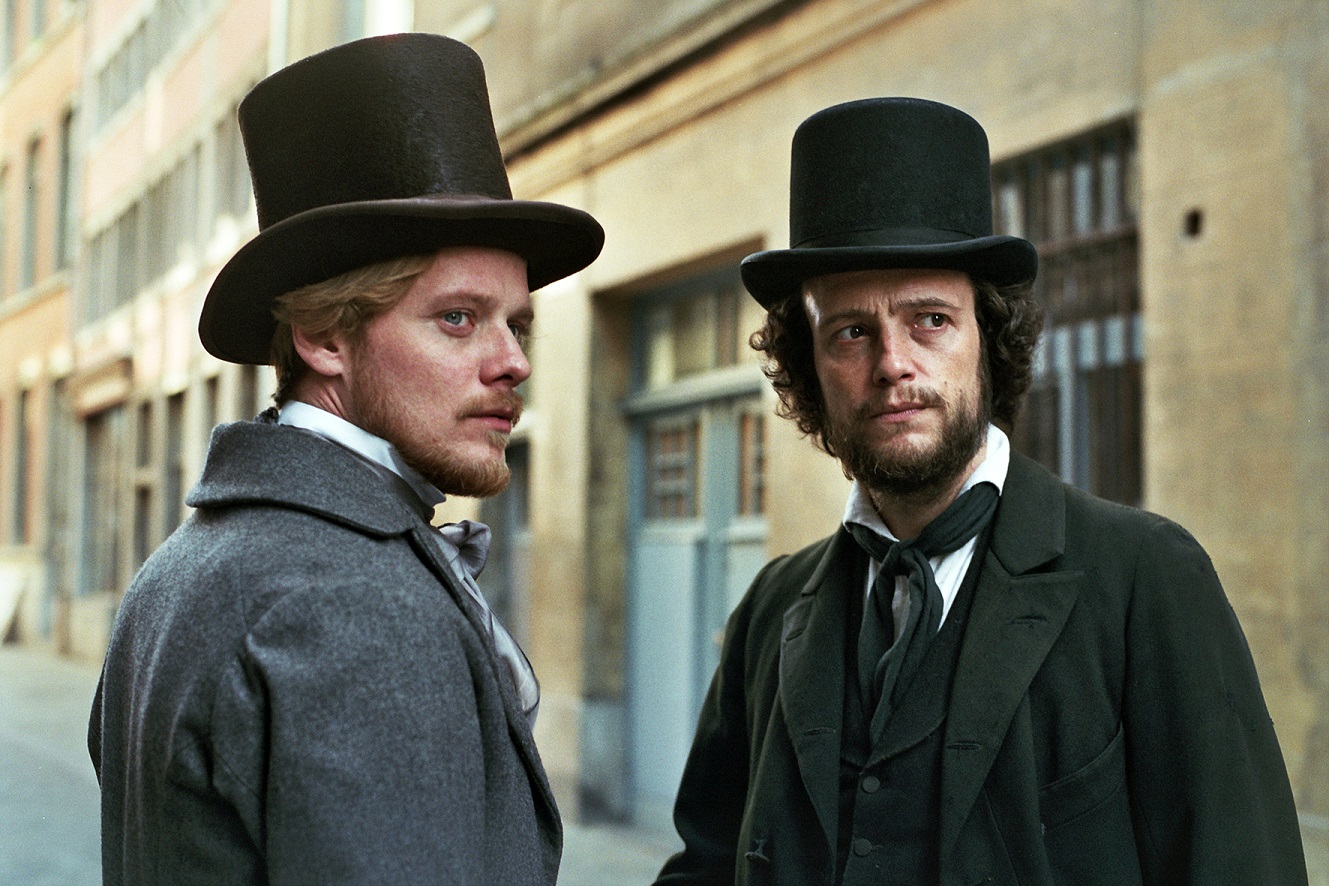
Timed to 170th anniversary of The Communist Manifesto, The Young Karl Marx is a biopic that does justice to the man whose story is being told.
Following a brief prologue that sets up the film, Karl Marx (August Diehl) is living in Cologne in April 1843 and writing for the Rheinische Zeitung newspaper. After the paper published an article that the government was unhappy with, Marx was arrested. Marx and his wife, Jenny (Vicky Krieps), end up relocating to Paris.
Eventually, Karl meets Friedrich Engels (Stefan Konarske) in Paris in 1844. This historic moment in time, for very different reasons, is similar to when John Lennon met Paul McCartney. The Communist Party that the duo would later start up is one that is very different from what it would be known for in the century to come.
Engels, whose dad was been a factory owner, had worked very hard in a research paper, The Condition of the Working Class in England in 1844, to expose the awful conditions for the working class in England. His long-time girlfriend, Mary Bruns (Hannah Steele), was one of those workers who wasn’t afraid to speak up for workers’ rights. It didn’t matter what the industry was, Engels called it out for what it was.
Maybe it was fate but what Engels brought to the table was everything that Marx needed to bring rise to a new labor movement. Forming The Communist League, their motto became “Workers of All Countries Unite.” These men, who were brilliant for their time, didn’t live to see their ideas be corrupted by governments in the 20th Century. Their views on what communism isn’t what people know it as today because of all the distortion.
The film ends with the narration of The Communist Manifesto. A month following the pamphlet’s publication in 1848, the French Revolution would start and international workers’ movements would form. Marx kept working on his three-volume, Das Kapital, until his death in London. As the ending titles play to Bob Dylan’s “Like A Rolling Stone,” a montage appears that takes us from the age of Marx through World Wars 1 & 2, the Vietnam War, Ronald Reagan and Margaret Thatcher, Nelson Mandela, and the Financial Crisis of 2008 through today. Their story is far from over.
Diehl’s portrayal brings a humanity to Marx through the gripping performance. Surprisingly enough, nobody has really chosen to tackle a biopic of the legend. Here’s a man who has some revolutionary ideas and Diehl does him justice through his performance. Vicky Krieps, who broke through last year with her performance in Phantom Thread, seems to get the short end of the stick this time around. The film doesn’t so much as let her showcase her talents in as much as making her a bit player. It’s understandable but surely, there’s something about Marx’s family life that would have informed his thought process.
Director and co-writer Raoul Peck chooses to offer us a glimpse at the life of Karl Marx right as he was beginning to hit is stride. This was a great decision on his part. We don’t get to see the grey-haired man who depends on Engels for income. Peck could have made the film appeal to a wider American audience by using all English in the dialogue. Instead, the film is a mix of several languages: English, German, and French. This makes for an authentic film in that regard.
Telling the story of Karl Marx on film, The Young Karl Marx is a captivating biopic that’s sure to get attention.
DIRECTOR: Raoul Peck
SCREENWRITER: Pascal Bonitzer & Raoul Peck
CAST: August Diehl, Stefan Konarske, Vicky Krieps and Olivier Gourmet
Premiering at the 67th Berlin International Film Festival, The Orchard releases The Young Karl Marx in New York and Los Angeles on February 23, 2018. The film will be available through On Demand and Digital platforms on March 6, 2018.




